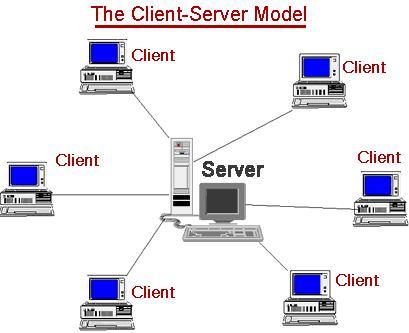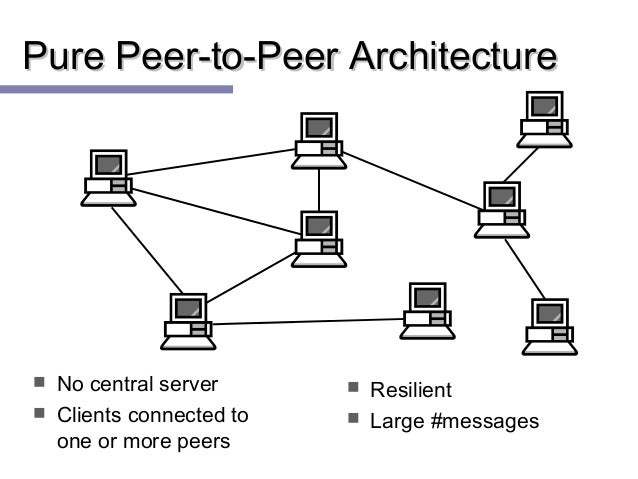CATEGORIES OF A NETWORK ARCHITECTURE

Client/server architecture is a computing model in which the server hosts, delivers and manages most of the resources and services to be consumed by the client. This type of architecture has one or more client computers connected to a central server over a network or Internet connection. This system shares computing resources.Client/server architecture may also be referred to as a networking computing model because all the requests and services are delivered over a network.
Client/server architecture is a producer-consumer computing architecture where the server acts as the producer and the client as a consumer. The server houses and provides high-end, computing-intensive services to the client on demand. These services can include applications access, storage, file sharing, printer access and/or direct access to the server’s raw computing power.
Client/server architecture works when the client computer sends a resource or process request to the server over the network connection, which is then processed and delivered to the client. A server computer can manage several clients simultaneously, whereas one client can be connected to several servers at a time, each providing a different set of services. In its simplest form, the Internet is also based on client/server architecture where the Web server serves many simultaneous users with Web page and or website data.

Peer-to-peer (P2P) computing or networking is a distributed application architecture that partitions tasks or workloads between peers. Peers are equally privileged, equipotent participants in the application. They are said to form a peer-to-peer network of nodes.
Peers make a portion of their resources, such as processing power, disk storage or network bandwidth, directly available to other network participants, without the need for central coordination by servers or stable hosts.] Peers are both suppliers and consumers of resources, in contrast to the traditional client-server model in which the consumption and supply of resources is divided. Emerging collaborative P2P systems are going beyond the era of peers doing similar things while sharing resources, and are looking for diverse peers that can bring in unique resources and capabilities to a virtual community thereby empowering it to engage in greater tasks beyond those that can be accomplished by individual peers, yet that are beneficial to all the peers.
While P2P systems had previously been used in many application domains, the architecture was popularized by the file sharing system Napster, originally released in 1999. The concept has inspired new structures and philosophies in many areas of human interaction. In such social contexts, peer-to-peer as a meme refers to the egalitarian social networking that has emerged throughout society, enabled by Internet technologies in general.

Peer-to-peer (P2P) computing or networking is a distributed application architecture that partitions tasks or workloads between peers. Peers are equally privileged, equipotent participants in the application. They are said to form a peer-to-peer network of nodes.
Peers make a portion of their resources, such as processing power, disk storage or network bandwidth, directly available to other network participants, without the need for central coordination by servers or stable hosts.] Peers are both suppliers and consumers of resources, in contrast to the traditional client-server model in which the consumption and supply of resources is divided. Emerging collaborative P2P systems are going beyond the era of peers doing similar things while sharing resources, and are looking for diverse peers that can bring in unique resources and capabilities to a virtual community thereby empowering it to engage in greater tasks beyond those that can be accomplished by individual peers, yet that are beneficial to all the peers.
While P2P systems had previously been used in many application domains, the architecture was popularized by the file sharing system Napster, originally released in 1999. The concept has inspired new structures and philosophies in many areas of human interaction. In such social contexts, peer-to-peer as a meme refers to the egalitarian social networking that has emerged throughout society, enabled by Internet technologies in general.
